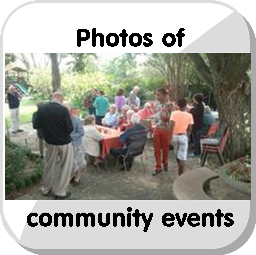|
‘In the sharing of … experiences and the gradual working out of an image of man, the universe and God based on these sources of experience, the Community finds its unifying force. It is obvious that in this process the teaching of Rudolf Steiner, who penetrated in his own way into the unseen world where our real I has its being is of inestimable value. But neither Steiner’s nor anyone else’s teaching past or present plays the part of ‘doctrine’ in The Christian Community. Strictly speaking, there is no doctrine. In fact, priests and members alike are constitutionally assured of complete freedom not only of conscience, but also of thought and belief. Such authority as is necessary for the coordinated conduct of a religious movement is only concerned with the distribution of human forces, the ordering of public activities, and the administration of physical needs.
The Movement, it is true, has a creed which is normally spoken by the priest in the communion service. But as already pointed out it does not contain the phrase ‘I believe’. It is an instrument of meditation which the individual seeker may or may not wish to use for his personal contemplation. It offers the fundamental facts of Christianity in twelve simple sentences which may draw a free response from a seeking mind. From these sources of experience we draw the faith by which we try to live. Faith with us follows, not precedes, knowledge. Faith with us is not a belief in things unknown and unknowable, or an acceptance on authority of a body of revealed teaching, but a state of active concern, almost a state of universal love engendered by the voyage of discovery into the fields of supersensible truth. It is understandable that a religious movement with this unusual character and qualities presents a puzzle to other religious bodies. We cannot pretend that our advent was universally welcomed by organized Christianity. The traditional bodies did not quite know what to make of us. In Central Europe the Community has been called a ‘kirchenähnliches Gebilde’, a ‘church-like something’. This is not a bad description. In one way, for all practical purposes we are a church. We hold services, christen babies, confirm young people, celebrate marriages, and conduct funerals. We give religious instruction to children, provide Bible classes and group-studies on other religious subjects, and offer our services of pastoral care. From all this we might be regarded as a denomination. On the other hand we attach no claim to our services, not only in the narrow economic sense that we do not charge ‘fees’ for our ministrations, but also in the wider sense that we offer our services to members and non—members alike; in fact to anyone who sincerely desires them. On these grounds we might be regarded as an interdenominational movement. The fact is, we do not easily fit into an existing category on any level. But I suppose this is the nature of a growing point. It breaks free of accepted patterns and follows its own laws of growth and form.
0 Comments
|
Article Archives
December 2022
2023 - January to December
2021 - January to December 2020 - January to December 2019 - January to December 2018 - January to December 2017 - January to December 2016 - January to December 2015 - January to December 2014 - November & December 2013 - July to December 2013 - January to June 2012 - April to December Send us your photos of community events.
Articles (prefaced by month number)
All
|

 RSS Feed
RSS Feed